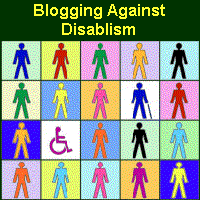The question is this:
In your opinion, how should accusations of clergy misconduct be handled, so that the rights of both the innocent and the guilty are respected? Or if you prefer, accusations against school teachers, catechists, police officers, you name it.
Does your diocese [district / department / etc.], or one you are familiar with, have a good process that works well?
Do you know of a case where an accusation of a serious crime was made, and the situation was handled well? What did it look like? Please do not use identifying info. This is not about any particular case, but about what methods that can be applied generally to all cases.
(Which means, I expect,the method needs to have multiple options, depending on the nature of the accusations, etc.)
Also, if you have a story to tell, stick to the facts that you know. Conjecture is not helpful and I’ll have to make fun of you it will lead others into temptation.
–Reply in the combox, or on your blog and then leave a link in the combox. Thanks.–
****************************************************
My personal experience: I’ve been very closely involved in two serious cases — one accusation of child molestation, one of rape. One of the accusations was true, the other was false. [Those are the facts, not the findings. I was close enough to both cases to know the facts.] Both cases were handled fairly, in my opinion, by the authorities to whom the incidents were reported, and by the police. Allegations were taken seriously, steps taken to keep minors safe, and investigations conducted quickly and with no pressure to sway the witnesses one way or another.
That said, in the case of the true accusation, the criminal committed more crimes before he was apprehended. (He was at large, stranger to the victims.) In the case of the false accusation, the man accused did suffer tremendously from the social stigma, being removed from work with minors, etc., even though he was eventually (and fairly quickly) acquitted.
–> As a result of these experiences, I have a hard time seeing my way clear to what an “ideal” process is. If the accusations are true, there is a pressing need to protect any future victims. Sweeping measures to remove the accused from any chance to harm more people is important. And the victims themselves need to be given tremendous support.
But especially with sexual crimes, and often enough with other crimes, there is no evidence. It is very easy to bring false accusations. Someone so inclined can shut down a ministry at will, simply by making the accusation. It takes a very clear head and a fair bit of life experience to be able to weed through the claims and personalities and discern whether the accusation is likely to be true or not.
–> I imagine many cases are not like the ones in which I was involved — where there were clear-thinking bystanders who knew the the parties involved and the details of the alleged incidents well enough to quickly resolve whether there was a probable crime. One of the hallmarks of repeated sexual abuse is that a group of on-lookers enable the behavior and refuse to intervene. Another, is that if innocent party is not taken seriously, it can wreak some serious psychological damage — creating an “unreliable” victim and the impression that the victim is the guilty one.
And distinctive in the case of church-related scandals, is that I don’t think we know each other very well. The community is often geographically spread out, and lives mostly apart. We come together for a tiny slice of our lives, but the world of church ministry is separate from our other work, our other leisure, our home life, etc. There are few people who know us very well. Who get to see us in all places and times and contexts.
So it is hard. I’d like to hear thoughts on what you think would make a good, fair way of dealing with accusations.

